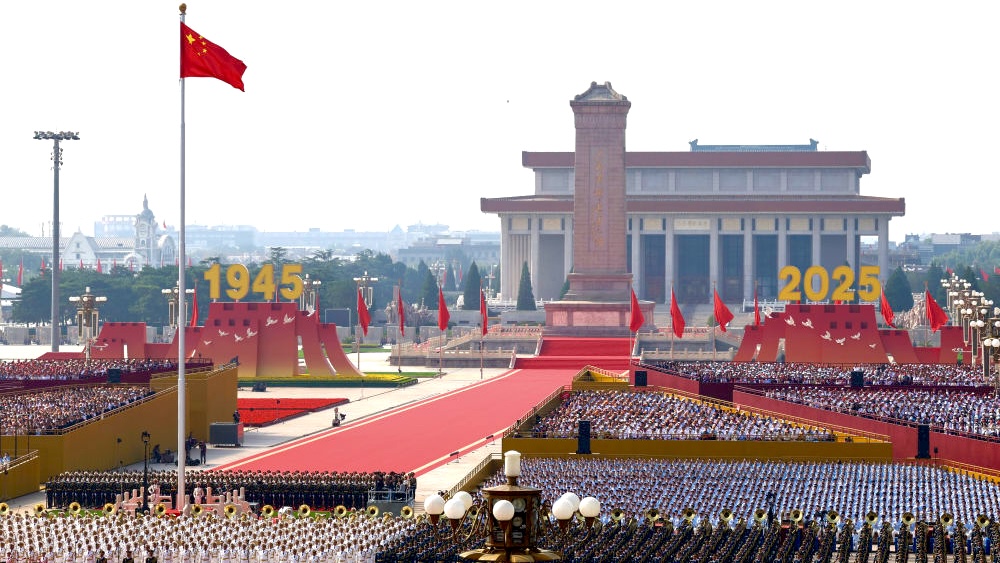On Wednesday, September 3, China celebrated the 80th anniversary of its victory against the Japanese occupation during World War II. A massive military parade was held at Tiananmen square in Beijing to mark the occasion.
The victory celebrations were attended by more than 20 foreign heads of state, including Russian President Vladimir Putin, Pakistan’s Prime Minister Shehbaz Sharif, Indonesia’s President Prabowo Subianto, Iranian President Masoud Pezeshkian, North Korean leader Kim Jong Un, leaders from Central Asian republics, and Belarusian President Alexander Lukashenko.
Family members and descendants of those who supported the Chinese people’s war of resistance against the Japanese, belonging to various countries around the world including from the US and various European countries, were also invited for the celebrations.
Speaking on the occasion, Chinese President Xi Jinping noted that the Chinese people have contributed and sacrificed immensely during the “World Anti-Fascist War” – as the Chinese refer to World War II – “for the salvation of human civilization and the defense of world peace.”
The Chinese will continue to join hands with the rest of the world to build “a community with a shared future for humanity”, along with pursuing its own development and modernization, Xi asserted.
The Chinese resistance to the Japanese occupation began in 1931 after Japan occupied a large part of Manchuria. The war of resistance lasted for over a decade and half coincided with World War II. It cost the Chinese over 35 million lives, including military personnel and civilians.
Read More: A black hole in collective memory: China and WW II
Finally on September 2, 1945, Japan officially surrendered. The Chinese marked September 3 as victory day.
Eliminate root causes of war
The Chinese victory was achieved thanks to the Communist Party of China (CPC) and its People’s Liberation Army. The CPC formed a national united front which was joined by all nationalist forces in China at the time. The united front included the ruling dispensation at the time as well, against whom the CPC was already leading a people’s rebellion.
Xi claimed that the defeat of Japan was the first Chinese victory against foreign aggression in modern times and hoped that the Chinese would continue to triumph against all hegemonic and oppressive forces in the future.
He claimed that economic development and national unity among all sections of the Chinese people is a must, along with a strong and modern military force “to safeguard national sovereignty, unity and territorial integrity.”
Despite the turbulence and uncertainties engulfing global politics at the moment when “humanity is again faced with a choice of peace or war, dialogue or confrontation, and win-win outcomes or zero-sum games,” his country has resolved for a strategy of “peaceful development,” Xi asserted.
China will be a modern society by 2035 as envisioned in the roadmap adopted by the CPC, Xi indicated.
Xi asserted that irrespective of the challenges and provocations, the noble cause of peace and development for mankind will surely triumph and China will always be on the right side of history.
Xi indicated towards the attempts of certain countries to try to dominate and hegemonize other countries, claiming such an approach may lead to the repeat of tragedies such as World War II.
“Only when nations across the world treat each other as equals, live in harmony and mutually support one another can common security be safeguarded, the root cause of war eliminated, and historical tragedies prevented from recurring,” Xi warned.
The post China celebrates 80th anniversary of victory over Japanese occupation, calls for an equitable and just world order appeared first on Peoples Dispatch.
From Peoples Dispatch via this RSS feed


